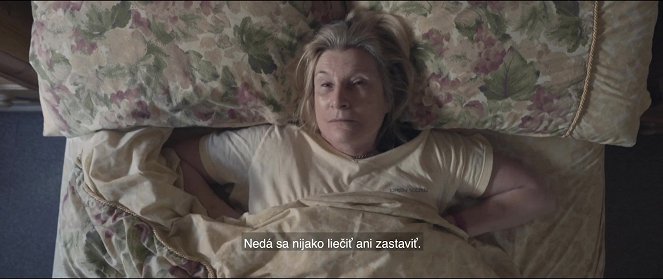Inhalte(1)
Janette lebt in Großbritannien und leidet an einer unheilbaren Muskeldystrophie. Die 72-Jährige möchte in Würde einen guten Tod sterben und entscheidet sich für ärztlich assistierten Suizid. Ihre Kinder möchten sie von ihrem Vorhaben abbringen. Der Dokumentarfilm befasst sich mit der Frage, ob wir das Recht haben sollten, selbstbestimmt zu sterben. (arte)
(mehr)Kritiken (1)
The Good Death is a documentary portrait of an English woman who intends to undergo euthanasia. Seventy-two-year-old Janet does not want to wait until her unfortunate health condition, caused by hereditary muscular dystrophy, deteriorates to such an extent that she becomes completely legally incompetent. She would lose the ability to make her own decisions supported by clear, rational arguments. She is not afraid of death. She has accepted it just as she previously accepted her illness and the fact that life is not fair and that it is necessary to deal with it in accordance with her current options (unfortunately, the film does not elaborate on the fact that not everyone in her situation has the same options and a "good" death is a kind of privilege, but I understand that such an exploration would be a detour from the direction in which the film’s attention is focused). While Janet determinedly and resignedly approaches the day when the pentobarbital solution will end her suffering, we follow in parallel the story of her son, who suffers from the same disease and anticipates the same fate.___Despite the apparent similarities in the way both social actors are filmed, however, her son’s storyline is more hopeful, as Simon is involved in research that could lead to the discovery of treatments for the currently incurable disease. The impressive visual concept, the use of contrasts and parallels, the heroine’s poetic off-screen commentary and the unforced mise-en-scène to illuminate Janet’s previous life keep the film in the space between procedural drama and open-minded consideration of how death is “natural” (two religious commentaries on euthanasia were typically included in the film – according to one, God should decide on our existence and non-existence; according to the other, God does not want us to suffer and it is therefore acceptable if we decide to end our own lives). Despite the occasional intensification of the melodramatic level through the use of mournful music and the aestheticisation of actions connected with one’s final affairs, the film does not resort to the exploitation of human misery. It is shot with great humility and understanding both for those who have decided to leave and for those who remain. 70%
()

